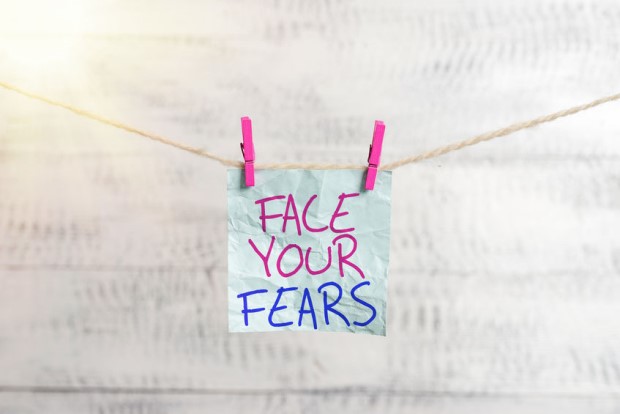
Fear is a very powerful emotion. It has a very strong effect on the mind and body because it is one of our natural survival responses. It tells you what to do in an emergency, like a fire or if you are being attacked.
We can also feel fear when faced with less dangerous situations, like exams, public speaking, a new job, a date, or even a party. It is a natural response to something that a person feels is a threat.
Anxiety is a type of fear. It is usually associated with the thought of a threat or something going wrong in the future, rather than something happening right now.
When you feel frightened or seriously anxious, your mind and body speed up. Some of the things that might happen are:
- heart beat gets very fast – maybe it feels irregular
- breathing gets very fast
- muscles feel weak
- sweat more
- stomach is churning or your bowels feel loose
- hard to concentrate on anything else
- feel dizzy
- feel frozen to the spot
- can’t eat
- hot and cold sweats
- dry mouth
- tense muscles.
These are all because your body is preparing you to respond to an emergency. Your body increases the blood flow to the muscles, increases your blood sugar and focuses your mind on the thing that’s scaring you.
With anxiety, you may have some of the above feelings as well as longer-term effects, such as:
- a more nagging sense of fear
- irritability
- trouble sleeping
- headaches
- trouble getting on with work and planning for the future
- problems having sex
- loss of self-confidence.
Fear and anxiety can last for a short time and then pass. But they can also last much longer and you can get stuck with them. In some cases they can take over your life. They can affect your appetite, sleep and concentration. They can stop people travelling, going to work or school, or even leaving the house.
This can hold you back from doing things you want or need to do, and affect your health. Health problems that are directly linked to fear include phobias, panic attacks and anxiety disorders, including obsessive compulsive disorder.
Some people become overwhelmed by fear and want to avoid situations that might make them frightened or anxious.
It can be hard to break this cycle, but you can learn to feel less fearful and to cope with your fear so it doesn’t stop you from enjoying life.
6 Steps to Handle Fear:
1. Face your fear if you can. If you always avoid situations that scare you, you might stop doing things you want or need to do and you won’t be able to test out whether the situation is always as bad as you expect. This means you won’t have the chance to work out how to manage your fears and reduce your anxiety. Anxiety problems tend to increase if you get into this pattern.
2. Know yourself. Try to learn more about your fear or anxiety. Keep a record of when it happens and what happens. You can try setting yourself small, achievable goals to face your fears. You could carry with you a list of things that help at times when you are likely to become frightened or anxious.
3. Relax. Learning relaxation techniques can help you with the mental and physical feelings of fear. It can help just to drop your shoulders and breathe deeply. Or imagine yourself in a relaxing place.
You could also learn things like Qigong, EFT, yoga, meditation, massage
4. Exercise. Take more physical exercise. This can trigger brain chemicals that improve your mood. Exercise needs concentration, and this can take your mind off your fear and anxiety.
5. Healthy eating. Eat lots of fruit and vegetables and try to avoid too much sugar. When you eat very sweet things the initial sugar ‘rush’ is followed by a sharp dip in sugar levels in your blood and this can give you anxious feelings. Try to avoid drinking too much tea or coffee as caffeine can increase anxiety levels.
6. Pray. Ask for help from your higher self, Angels and The Universe. Learn how to connect with your Higher self.



